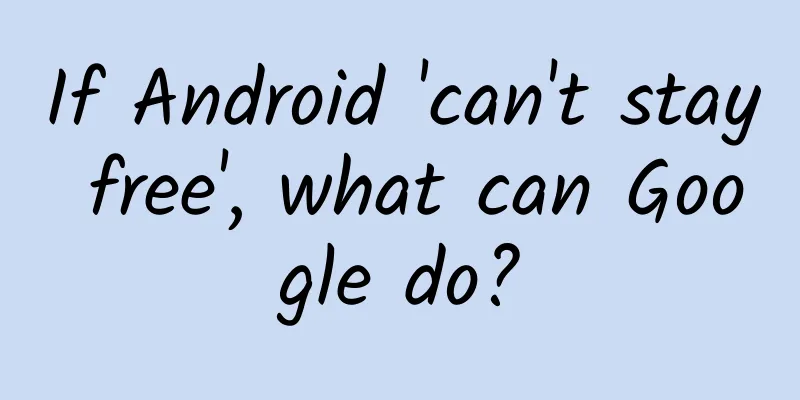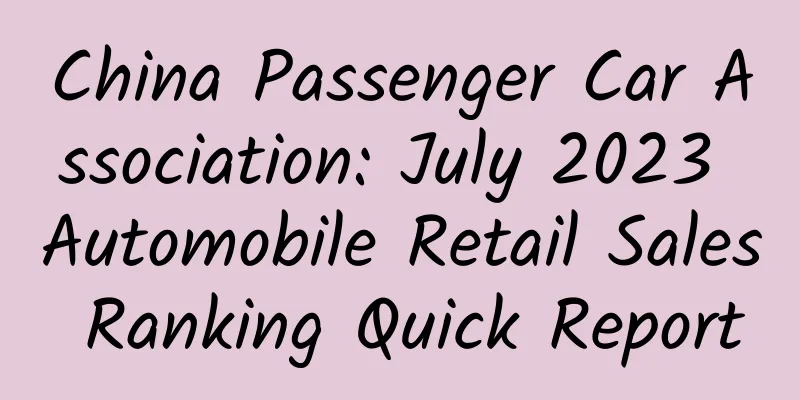If Android 'can't stay free', what can Google do?

|
The European Commission pointed out that Android devices pre-install Google Search and Chrome browser as a condition for using Google Play, and that financial benefits are exchanged for third parties installing Google Search apps on mobile phones. These two points directly hit Google's sore spots. In fact, this is also the operating feature of Android in Google's business model so far. On the day the EU made the fine decision, Google Chairman and CEO Sundar Pichai publicly published an article titled "Android has created more choice, not less", announcing that Google has decided to appeal. Interestingly, Pichai pointed out in the article that
The sharp-eyed media quickly caught this information and interpreted it as Pichai's signal that "Android may not be able to remain free." In fact, according to the original expression, it seems more appropriate to interpret it as "Android may not be able to remain open source." So the question is, regardless of how much pressure the EU's huge fine has brought to Google, is it feasible to assume that Android "cannot remain free" or "cannot remain open source"? If so, what will Google do? Open Origin First of all, it should be clear that as an open source operating system, Google has the legality to authorize third parties to use its own GMS services, including a large number of application layer programs and a few elements close to middleware. This means that the Android system as a whole is not a completely open source software. According to the agreement when the Open Handheld Alliance was first established, the open source part of the Android system, AOSP, was initiated and maintained by Google. At the same time, the closed source part also includes a series of Google's own applications such as Gmail, Google Maps, Google Play, Chrome, etc. In November 2007, Google released the Android open source project AOSP. The first generation of iPhone captured the imagination of the world and ushered in the modern smartphone era. A Google executive at the time recalled what Andy Rubin said when he first promoted Android: "If Google doesn't act, we will face a grim future: one person, one company, one device, one carrier will be our only choice!" Fearing that Apple would eventually dominate the entire mobile space, no one would use Google Search within the closed confines of the iPhone. Therefore, in 2007, without any mobile foothold, Google chose to launch Android as a free open source project in order to quickly enter the market. At that time, Google's main strategic intention was to use Android as a "moat" for its own search and online products to protect Google's online assets in the mobile world. But things were different afterwards. In 2013, Android devices had a global share of 80%, and it was clear that Android was the winner of the smartphone war. But Android's victory did not mean Google's victory. Google felt that the wild growth of Android might be out of its control, and a series of derivative systems different from the original Android would become another threat. Since then, Google has accelerated the tightening of Android permissions and actively launched more and more applications based on its own services. From the outside, Google no longer cares about the version updates of AOSP, the open source part of Android. Kernel pain Google's reduction of Android permissions has not affected the increasing fragmentation of the Android system, and the Android system's closed-source status, which third-party manufacturers once worried about, has not happened. Why is this? We try to analyze the open source nature of the Android system: The Android system was jointly developed by Google and the Open Handheld Alliance, and is currently maintained and released by Google. The system kernel is written in C language, some middleware is written in C++, and the UI part is written in Java, Kotlin and Python. The Android kernel is actually a modified Linux kernel. Therefore, although the system is released as open source software under the permissive Apache 2.0 license, the kernel part is still released under the strict GPL v2 license because the Linux kernel has been released under the GPL v2 version to date. Open source license (also known as free software distribution license) is a professional term in the software industry. It is only used for a series of rules selected for publishers and users to follow when the software source code is released in an open manner. There are many types of open source licenses, which are divided into two categories based on whether the source code can be closed after being modified by others. GPL can be considered the most stringent open source license. In addition to requiring that the source code cannot be closed, the newly added code must also follow the rules of GPL. In other words, for source code released under the GPL license, new code generated by others using independent intellectual labor based on this source code must still be released under the GPL rules, and derivatives cannot be closed source. Therefore, the GPL license is jokingly called "contagious" in the industry. The most relaxed MIT license not only does not require open source, but also can be used for commercial activities in an open manner. The Apache 2.0 license used by Android is similar to this. However, since Android uses the Linux kernel and cannot circumvent the rules of GPL v2, this is the part that Google can never close the source of. This is also the source of Google's greatest concern: the open Android kernel may lead to a mess like countless Linux distributions. Any powerful manufacturer and third-party developer can modify the kernel and release a new version. Once one of them becomes popular (just like Ubuntu in the Linux distribution back then), it will inevitably pose a threat to the native Android maintained by Google. In fact, Amazon's Kindle Fire does just that. Can Google change Android's business model? Now Android's business model is very clear. Due to the GPL v2 license, Google cannot license and charge for Android as a whole software, because no matter how you modify the kernel source code, it must be open source, and the copyright is not exclusive to you. But if you develop application layer software that runs on the Android system, you can choose to release it under any license, or you can close the source and charge for it. There are no restrictions. Therefore, Android cannot bring direct benefits to Google. Google's business model is to divert traffic to its own ecosystem by loading its high-traffic Internet applications on the Android system, thereby achieving advertising revenue, and the GMS service licensing fees charged to a few manufacturers are not the focus. In fact, Google's business model has not gotten rid of the drawbacks of a single structure for many years. The 2018Q1 financial report shows that Google's total revenue for the quarter was US$31.146 billion, with advertising revenue of US$26.642 billion, accounting for 85.5% of the total revenue. Advertising has almost become the entire source of Google's main business. With the rise of Amazon and the pressure of Microsoft's "smart edge" layout in the past two years, Google has fallen far behind the former two in cloud computing and hardware sales. As the revenue of competitors has become increasingly diversified, Google's total market value has also been surpassed by the former two. In addition, Apple's recent iPhone market share has recovered, and its control over the supply chain has become more active and powerful. In contrast, Google has no basic foundation and confidence in hardware. On the issue of the Android camp, the relationship between Google and manufacturers and partners can only be interdependent and mutually beneficial. It is said that it is extremely difficult to close Android, charge more, or change the business model. Pichai's concern about "potentially subverting the balance of Android" in his blog post can only be a protest against the harsh punishment imposed by the European Union. *** Android has brought more troubles to Google than this, and the previous Oracle Java case has not yet been resolved. These troubles are all caused by the peculiarities of the Android operating system, so Google has been quietly developing a new system, Fuchsia, hoping to overcome the limitations of Android. However, insiders revealed that the development team had heated debates on the operation of the new system, and Google executives were also cautious about the relationship between the new system and Android. After all, the current Android landscape is no longer controlled by Google alone, and those manufacturers, third parties and developers who rely on the Android ecosystem will not change their relationship with Android because of Google's attitude. |
<<: This time, I'm not going to stand on Google
>>: What does the Android system API level mean? What benefits can it bring to users?
Recommend
Controversy for 60 years: Does hot water freeze faster than cold water?
For a long time, there has been a saying that hot...
iOS17 is now available for update! Netizens tested it and found it to be very cool, but the battery life is...
iOS 17 is finally here and was officially pushed ...
Practical information: Here is the ultimate guide to app content marketing!
As of 2018, there are more than 20,000 apps on th...
How much does it cost to customize the Bijie learning mini program? Bijie learning applet customization price inquiry
There is no fixed price for the customization of ...
It's not snowing, it's a white desert
Science Times reporter Hu Lijuan There is a white...
This is the most common model of user operation. Come and take a look. It is written in great detail!
As an operator , you must have done this: invite ...
What has our ancestors had for their New Year’s Eve dinner for more than two thousand years?
It’s New Year’s Eve again, we stay up all night, ...
20 Awesome Free Bootstrap Admin and Front-end Templates
1. SB Admin 2 Details & Download 2. Adm...
How to solve the problem of active WeChat groups? Teach you 4 big moves!
Combining the relevant content of the community c...
Do educational and training institutions need to develop private domains?
It is an indisputable fact that the customer acqu...
Galaxy Note 5 battery life/charging results are out: amazing!
A few days ago, Samsung held a press conference i...
Have you ever seen a panda with "faded color"? This article will tell you about brown pandas!
Have you ever seen a brown panda? At the Shaanxi ...
What are the steps to activate Douyin Blue V? What is the use of Douyin Blue V?
I believe everyone knows that Tik Tok short video...
Comparison of the world's top 5 mobile phone fast charging speeds: iPhone ranks last
Nowadays, the performance of mobile phones has soa...
How did Facebook achieve 800,000 people watching live broadcasts at the same time?
There are only a handful of companies that know h...









